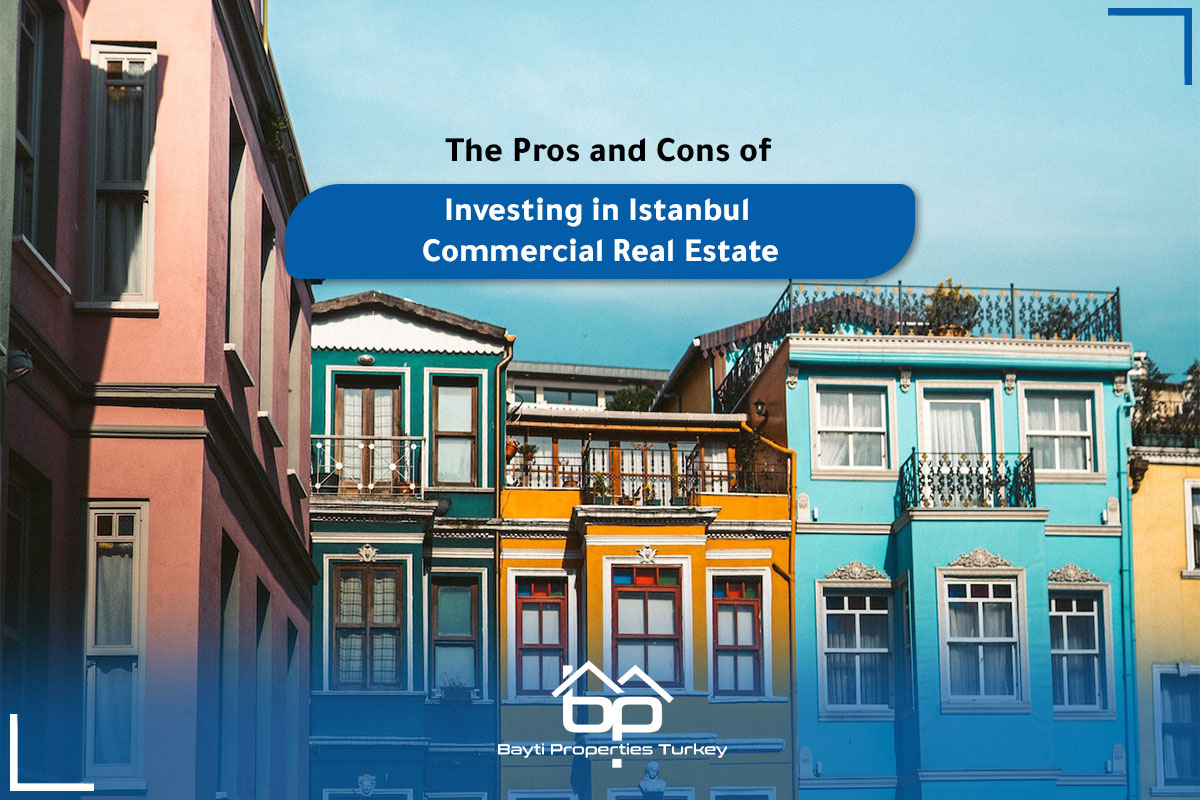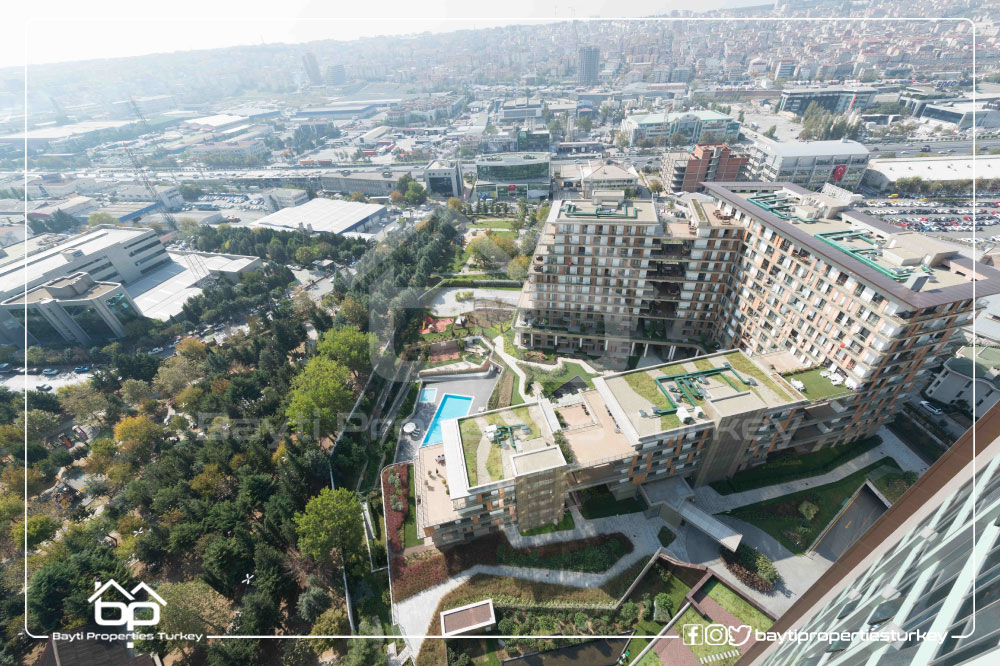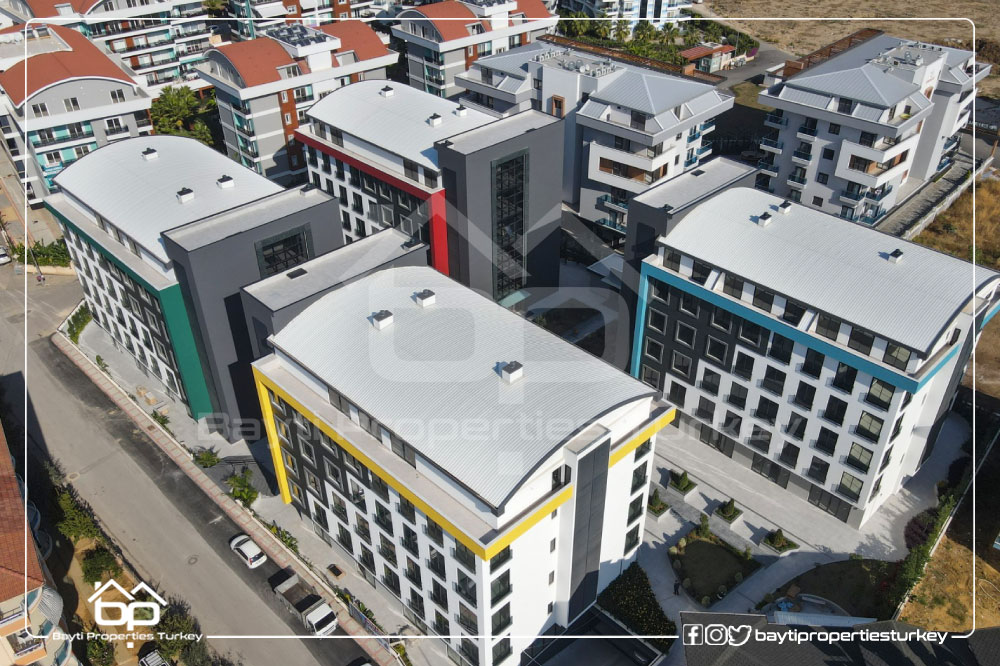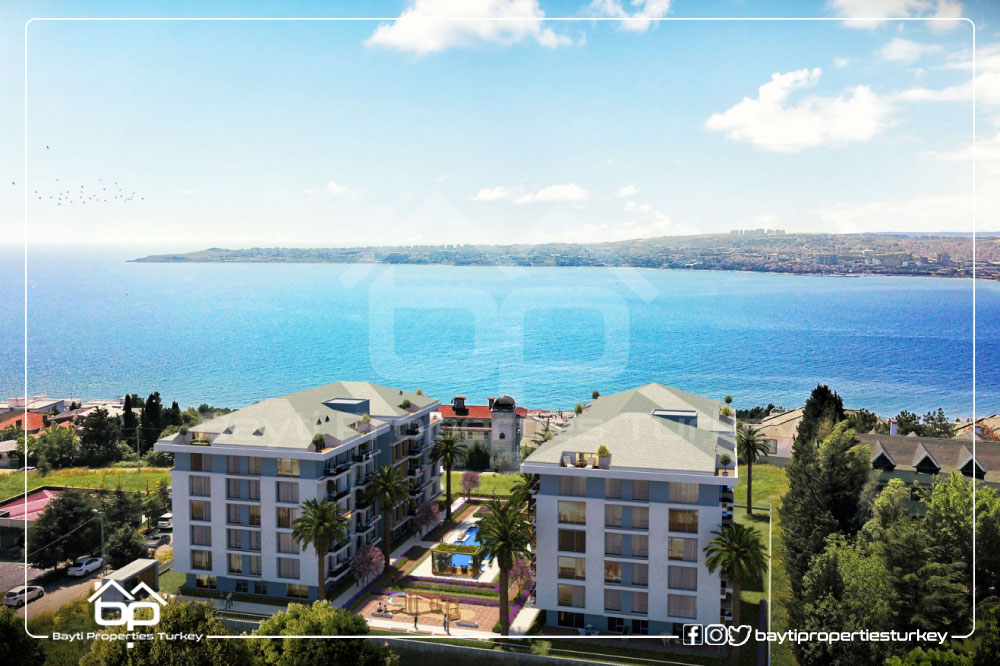-
Table of Contents
“Exploring the potential risks and rewards of Istanbul’s commercial real estate market.”
Introduction
Investing in Istanbul commercial real estate can be a lucrative opportunity for investors. However, like any investment, there are both pros and cons to consider before making a decision. In this article, we will explore the advantages and disadvantages of investing in Istanbul commercial real estate.
Tips for Successful Investment in Istanbul Commercial Real Estate
Istanbul is a city that has been attracting investors from all over the world for many years. The city’s strategic location, rich history, and cultural diversity make it an ideal place for investment. One of the most popular investment options in Istanbul is commercial real estate. However, like any investment, there are pros and cons to investing in Istanbul commercial real estate. In this article, we will discuss the pros and cons of investing in Istanbul commercial real estate and provide tips for successful investment.
Pros of Investing in Istanbul Commercial Real Estate
1. High Rental Yields: Istanbul’s commercial real estate market offers high rental yields, making it an attractive investment option. The city’s growing economy and increasing demand for commercial space have resulted in high rental yields, which can provide investors with a steady stream of income.
2. Strategic Location: Istanbul’s location at the crossroads of Europe and Asia makes it an ideal location for businesses. The city’s proximity to major markets in Europe, the Middle East, and Asia makes it an attractive location for businesses looking to expand their operations.
3. Growing Economy: Istanbul’s economy has been growing steadily over the past few years, with a focus on sectors such as finance, tourism, and real estate. This growth has resulted in an increase in demand for commercial space, making it an attractive investment option.
4. Cultural Diversity: Istanbul’s cultural diversity makes it an attractive location for businesses looking to expand their operations. The city’s rich history and cultural heritage make it an ideal location for businesses looking to tap into the local market.
Cons of Investing in Istanbul Commercial Real Estate
1. Political Instability: Turkey has experienced political instability in recent years, which has had an impact on the country’s economy and real estate market. Investors should be aware of the political situation in Turkey before investing in Istanbul commercial real estate.
2. Currency Fluctuations: Turkey’s currency, the lira, has experienced significant fluctuations in recent years. This can have an impact on the value of investments in Istanbul commercial real estate.
3. Legal Issues: Turkey’s legal system can be complex and difficult to navigate, which can make investing in Istanbul commercial real estate challenging. Investors should seek legal advice before investing in Istanbul commercial real estate.
Tips for Successful Investment in Istanbul Commercial Real Estate
1. Research the Market: Before investing in Istanbul commercial real estate, it is important to research the market thoroughly. This includes understanding the demand for commercial space, rental yields, and the political and economic situation in Turkey.
2. Seek Professional Advice: Investors should seek professional advice before investing in Istanbul commercial real estate. This includes seeking legal and financial advice to ensure that the investment is sound.
3. Choose the Right Location: Location is key when it comes to investing in Istanbul commercial real estate. Investors should choose a location that is in high demand and has the potential for growth.
4. Consider the Tenant: When investing in Istanbul commercial real estate, it is important to consider the tenant. Investors should choose tenants that are reliable and have a good track record.
In conclusion, investing in Istanbul commercial real estate can be a lucrative investment option. However, investors should be aware of the pros and cons of investing in Istanbul commercial real estate and take steps to ensure a successful investment. By researching the market, seeking professional advice, choosing the right location, and considering the tenant, investors can make sound investment decisions in Istanbul commercial real estate.
Factors to Consider Before Investing in Istanbul Commercial Real Estate
Istanbul is a city that has been attracting investors from all over the world for many years. The city’s strategic location, rich history, and cultural diversity make it an ideal place to invest in commercial real estate. However, before investing in Istanbul commercial real estate, there are several factors that you need to consider. In this article, we will discuss the pros and cons of investing in Istanbul commercial real estate.
One of the main advantages of investing in Istanbul commercial real estate is the city’s strategic location. Istanbul is located at the crossroads of Europe and Asia, making it an important hub for trade and commerce. The city’s two international airports, Ataturk and Sabiha Gokcen, make it easy to travel to and from Istanbul, which is a major advantage for businesses that need to move goods and people quickly.
Another advantage of investing in Istanbul commercial real estate is the city’s growing economy. Istanbul is the economic capital of Turkey and is home to many multinational companies. The city’s economy has been growing steadily over the past few years, and this trend is expected to continue in the future. This means that there will be plenty of opportunities for businesses to grow and expand in Istanbul, which is good news for investors.
However, there are also some disadvantages to investing in Istanbul commercial real estate. One of the main challenges is the high cost of real estate in the city. Istanbul is a popular destination for tourists and investors, which has driven up the price of commercial real estate. This means that investors will need to have a significant amount of capital to invest in the city’s real estate market.
Another challenge is the complex legal system in Turkey. The legal system in Turkey can be difficult to navigate, especially for foreign investors. This means that investors will need to work with experienced lawyers and real estate agents to ensure that their investments are protected.
In addition to these challenges, there are also some risks associated with investing in Istanbul commercial real estate. One of the main risks is the political instability in the region. Turkey has been facing political turmoil in recent years, which has had an impact on the country’s economy. This means that investors will need to be prepared for potential risks and uncertainties when investing in Istanbul.
Despite these challenges and risks, investing in Istanbul commercial real estate can be a lucrative opportunity for investors. The city’s strategic location, growing economy, and cultural diversity make it an attractive destination for businesses and investors alike. However, before investing in Istanbul commercial real estate, it is important to carefully consider the risks and challenges associated with the market.
In conclusion, investing in Istanbul commercial real estate can be a great opportunity for investors who are willing to take on some risks and challenges. The city’s strategic location, growing economy, and cultural diversity make it an attractive destination for businesses and investors. However, investors will need to carefully consider the challenges and risks associated with the market before making any investment decisions. With the right approach and a solid investment strategy, investing in Istanbul commercial real estate can be a profitable venture for investors.
Disadvantages of Investing in Istanbul Commercial Real Estate
Investing in commercial real estate in Istanbul can be a lucrative opportunity for investors looking to diversify their portfolio. However, like any investment, there are both advantages and disadvantages to consider before making a decision. In this article, we will explore the cons of investing in Istanbul commercial real estate.
One of the biggest disadvantages of investing in Istanbul commercial real estate is the high level of bureaucracy and red tape involved in the process. The Turkish legal system can be complex and time-consuming, and investors may find themselves bogged down in paperwork and legal procedures. This can be especially challenging for foreign investors who may not be familiar with the local laws and regulations.
Another challenge that investors may face is the lack of transparency in the real estate market. It can be difficult to obtain accurate information about the value of properties, rental rates, and other important data. This can make it challenging for investors to make informed decisions about their investments.
In addition, Istanbul’s commercial real estate market can be highly competitive, with many investors vying for the same properties. This can drive up prices and make it difficult for investors to find good deals. It can also lead to a situation where investors are forced to compromise on the quality of the property they invest in, which can impact their returns in the long run.
Another potential disadvantage of investing in Istanbul commercial real estate is the risk of political instability. Turkey has experienced periods of political unrest in recent years, which can impact the real estate market. Investors may find themselves facing unexpected challenges if the political situation in the country changes.
Finally, investors should be aware of the potential for economic instability in Turkey. The country has experienced periods of economic growth in recent years, but there are also concerns about inflation and other economic challenges. This can impact the real estate market and make it difficult for investors to achieve their desired returns.
In conclusion, investing in Istanbul commercial real estate can be a challenging but potentially rewarding opportunity for investors. However, it is important to carefully consider the potential disadvantages before making a decision. Investors should be prepared to navigate the complex legal system, deal with a lack of transparency in the market, and face stiff competition from other investors. They should also be aware of the potential for political and economic instability in Turkey. By weighing these factors carefully, investors can make informed decisions about their investments and maximize their chances of success.
Advantages of Investing in Istanbul Commercial Real Estate
Istanbul, the largest city in Turkey, is a hub of economic activity and a popular destination for tourists. With its strategic location between Europe and Asia, Istanbul has become a prime location for commercial real estate investment. Investing in Istanbul commercial real estate has its advantages and disadvantages, and it is important to weigh them carefully before making a decision.
One of the main advantages of investing in Istanbul commercial real estate is the city’s growing economy. Istanbul is a major center for trade and commerce, and its economy has been growing steadily over the past few years. This growth has led to an increase in demand for commercial real estate, which has resulted in higher rental yields and property values.
Another advantage of investing in Istanbul commercial real estate is the city’s strategic location. Istanbul is located at the crossroads of Europe and Asia, making it an important hub for international trade and commerce. This strategic location has attracted many multinational companies to set up their operations in Istanbul, which has led to a high demand for commercial real estate.
Investing in Istanbul commercial real estate also offers investors a diverse range of property types to choose from. From office buildings to retail spaces, Istanbul has a variety of commercial properties that can cater to different investment strategies. This diversity allows investors to choose properties that align with their investment goals and risk tolerance.
In addition, investing in Istanbul commercial real estate offers investors the opportunity to benefit from the city’s growing tourism industry. Istanbul is a popular tourist destination, attracting millions of visitors every year. This has led to a high demand for commercial properties such as hotels, restaurants, and retail spaces, which can provide investors with a steady stream of rental income.
However, investing in Istanbul commercial real estate also has its disadvantages. One of the main challenges is the complex legal and regulatory environment. The Turkish legal system can be difficult to navigate, and investors may face challenges in obtaining permits and licenses for their properties.
Another challenge is the high level of competition in the Istanbul commercial real estate market. With a growing number of investors entering the market, it can be difficult to find properties that offer attractive returns. This can lead to a higher risk of overpaying for properties, which can negatively impact an investor’s returns.
Investing in Istanbul commercial real estate also requires a significant amount of capital. The city’s prime locations and high demand for commercial properties can result in higher property prices, which may be out of reach for some investors. Additionally, investors may need to invest in renovations and upgrades to make their properties more attractive to tenants, which can add to the overall cost of the investment.
In conclusion, investing in Istanbul commercial real estate has its advantages and disadvantages. While the city’s growing economy, strategic location, and diverse range of property types offer attractive investment opportunities, investors must also navigate a complex legal and regulatory environment, high competition, and significant capital requirements. It is important for investors to carefully weigh these factors before making a decision to invest in Istanbul commercial real estate.
Conclusion
Conclusion: Investing in Istanbul commercial real estate has its pros and cons. On the positive side, Istanbul is a growing city with a strong economy and a large population, making it a promising market for commercial real estate. Additionally, the government has implemented policies to attract foreign investors and improve infrastructure. However, there are also challenges such as high competition, bureaucratic procedures, and potential political instability. It is important for investors to carefully evaluate the market and seek professional advice before making any investment decisions.












